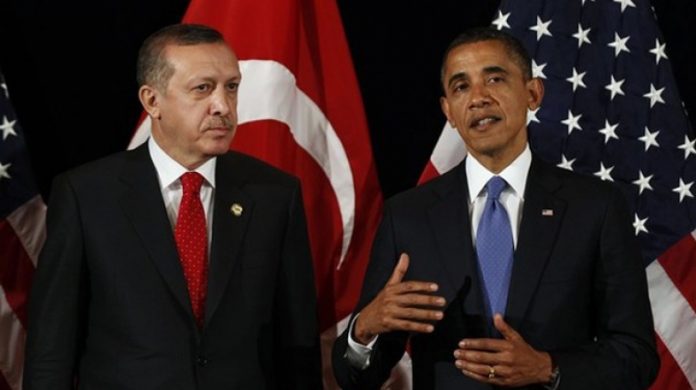Etyen Mahçupyan
Turkish and American bureaucrats from the two countries worked on a joint text following an 80-minute telephone conversation between President Recep Tayyip Erdoğan and U.S. President Barack Obama. Many texts probably went back and forth between Ankara and Washington. Consequently, they came to an agreement late that evening and the Turkish bureaucrats issued a statement. However, it was only afternoon in the U.S. and there were still several hours until the evening. It was seen that some parts of the joint text were changed when the U.S. declared it to the public in the evening, which indicates an all-too-familiar scandal. Although no one welcomed the situation, almost everyone understood it. If the situation had been the other way around, for instance, if the U.S. had been forced to make a joint statement with Iran, the changes that the U.S.'s text showed at the 11th hour would not have surprised anyone. It was all about the U.S. remaining helpless and without politics.
The U.S. came to the Middle East with an extreme psychological concentration on DAESH, which it regards and points to as a single danger. Indeed, anyone living in this part of the world, which includes Turkey, knows how DAESH emerged or was enabled to emerge and everyone is aware of how dangerous it is to fail to eliminate this organization. It seems rather weird that such a structure, which has relatively very limited military power and which has nowhere to hide in the middle of the desert, still survives even though the whole world cooperates against it. This situation has a single explanation. Even though many players in the region seem to fight DAESH, they actually cooperate with it.
The bright side of the issue is that the Middle East cannot help but be transparent in today's world, although it has many scheming features. So, we are aware of monetary and military deals between DAESH, Syria's Bashar Assad and the Democratic Union Party (PYD), and we know how oil revenues are shared, oil refineries are protected, territory is divided and military dealings are guaranteed. Moreover, we know that this cooperation is not limited to this alone, as it is rendered reliable thanks to Iran's capability of regulation and guidance on the field and Russia's military shield. Those who want it can have information about the roles of Russian businessmen and banks.
Indeed, the U.S. had a much simpler concern. It asked who objected DAESH the most and faced two axes. One of them included the Free Syrian Army (FSA), Qatar, Saudi Arabia and Turkey and the other consisted of Assad and reached Russia through the PYD and Iran. The latter seemed to be much more reasonable in terms of the fight against DAESH. After all, countries included in the former are Sunni like DAESH and they were more concerned about the fate of the Sunnis in Syria. However, those in the second group are either Shiites or have other ethnic identities.
Consequently, the U.S. did what seemed to be rational. Although it did not want the removal of Assad and Russia's settlement in Syria, it expanded the radius of action of the second group by highlighting the DAESH threat. In doing so, it thought that it would maintain the balance by supporting the first group, which was already an ally. It also thought that DAESH would be overcome and the Middle East's need for the U.S.'s arbitration would continue in this way. However, this did not come true, as those who actually wanted the elimination of DAESH were the Sunni group. The second group still boosts its power thanks to DAESH and certainly does not want the removal of DAESH.
Even if it were not for the refugee crisis, the U.S. made a mistake and thinks that it is correct to maintain this apparent mistake. How will the U.S. make Europeans, who are its primary partners, accept this policy while refugees are at Europe's doorstep?


